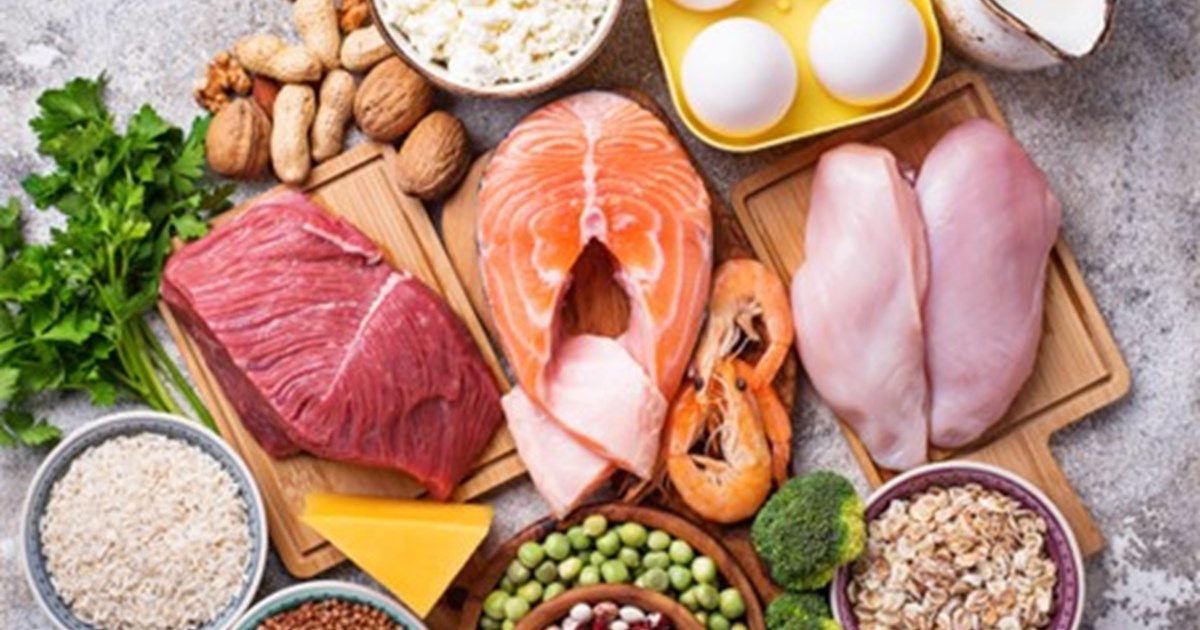The Power of Protein

Protein is one of three macronutrients that help fuel your body and the various energy systems that make it up. Unlike carbohydrates and fats, the body does not store protein, so regular intake is essential for your overall health.
Protein plays a crucial role in maintaining and promoting optimal health. From supporting muscle growth to aiding in immune function, the power of protein is unmatched.
Muscle Development and Repair
One of the most well-known functions of protein is its role in muscle development and repair. When we engage in physical activities, especially resistance training, microscopic damage occurs to the muscle fibers being worked. Protein helps repair and rebuild these fibers, which results in muscle growth.
Metabolism and Satiety
Protein has a high metabolic effect; in other words, the body expends more energy to digest proteins than it does for fats and carbohydrates. This increased use of energy results in feeling satiated, or full, after consumption and reduces overall calorie intake.
Immune Function
Protein is essential for a well-functioning immune system. Antibodies are crucial components of the immune system and are made of proteins. A diet rich in protein can help the body produce an adequate supply of antibodies, strengthening its defense against infections and illnesses.
The recommended daily protein intake varies based on factors such as age, sex, activity level and overall health. Generally, protein should make up 10-35% of your daily caloric intake. The Recommended Dietary Allowance (RDA) suggests a daily protein intake of 0.36 grams per pound, or 0.8 grams per kilogram, of body weight for sedentary adults. However, individuals engaged in regular physical activity, especially those involved in resistance training or endurance exercises, may require higher protein intake.
For athletes looking to optimize muscle growth and recovery, the American Dietetic Association (ADA) recommends consuming between 0.5 to 0.9 grams per pound, or 1.2 to 2.0 grams per kilogram, of body weight. Individuals involved in intense training may benefit from higher protein intake within this range.
It's important to distribute protein intake evenly throughout the day to maximize its benefits. Including protein-rich sources in each meal, such as lean meats, poultry, fish, eggs, dairy products, legumes and plant-based protein sources, ensures a steady supply of amino acids for the body.
Incorporating an adequate amount of protein into your daily diet is crucial for overall health, muscle development and immune function. Whether you are an athlete striving for peak performance or someone simply aiming for a healthy lifestyle, understanding and meeting your protein needs can unlock the full potential of this essential nutrient. By incorporating a variety of protein-rich foods into your diet and adjusting your intake based on your needs, you can harness the power of protein for a healthier and more vibrant life.
For guidance on protein-rich foods, check out the chart below.
|
Animal-based Sources |
Grams Per Serving |
Vegan Sources |
Grams Per Serving |
|
Skinless chicken breast |
3 ounces = 28 grams |
Soy (edamame, soy milk, tofu) |
½ cup tofu = 10 grams |
|
Pork |
3 ounces = 22 grams |
Nuts (almonds, peanuts, walnuts) |
2 Tablespoons almonds = 3 grams |
|
Steak (lean cut) |
3 ounces = 26 grams |
Beans (lentils, chickpeas, black beans) |
½ cup black beans = 7 grams |
|
Large eggs |
6 grams |
Grains (spaghetti, rolled oats, quinoa) |
½ cup rolled oats = 7 grams |
|
Dairy products (milk, yogurt, cheese) |
1 cup yogurt = 12 grams |
Veggies (spinach, potatoes, broccoli) |
1 cup cooked spinach = 5 grams |
|
Seafood (salmon, tuna, shrimp) |
4 ounces salmon = 27 grams |
Seeds (sunflower, chia) |
1 ounce chia seeds = 4.7 grams |
